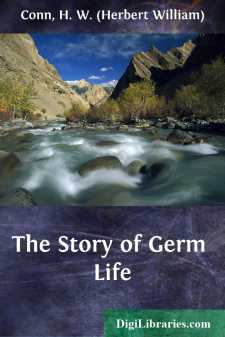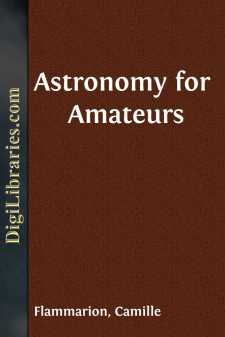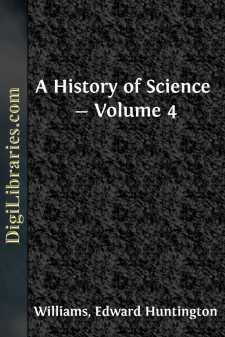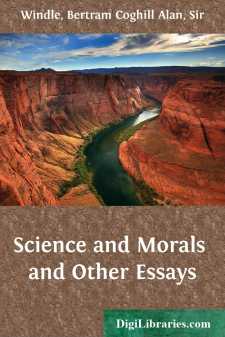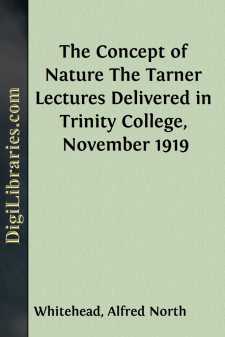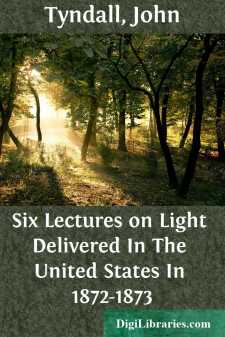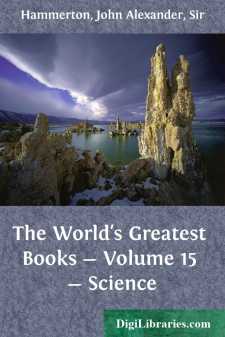Science
- Astronomy 18
- Biology 40
- Chemistry 13
- Electricity 1
- General 38
- History 6
- Light 1
- Paleontology 2
- Philosophy & Social Aspects 1
- Physics 3
- Relativity 2
- Study & Teaching 1
- Waves & Wave Mechanics 1
Science Books
Sort by:
CHAPTER I. BACTERIA AS PLANTS. During the last fifteen years the subject of bacteriology [Footnote: The term microbe is simply a word which has been coined to include all of the microscopic plants commonly included under the terms bacteria and yeasts.] has developed with a marvellous rapidity. At the beginning of the ninth decade of the century bacteria were scarcely heard of outside of scientific...
more...
INTRODUCTION The Science of Astronomy is sublime and beautiful. Noble, elevating, consoling, divine, it gives us wings, and bears us through Infinitude. In these ethereal regions all is pure, luminous, and splendid. Dreams of the Ideal, even of the Inaccessible, weave their subtle spells upon us. The imagination soars aloft, and aspires to the sources of Eternal Beauty. What greater delight can be...
more...
On the 30th November, 1858, Jagadis Chunder was born, in a respectable Hindu family, which hails from village Rarikhal, situated in the Vikrampur Pargana of the Dacca District, in Bengal. He passed his boyhood at Faridpur, where his father, the late Babu Bhugwan Chunder Bose, a member of the then Subordinate Executive Service was the Sub-Divisional Officer; and it was there that he derived "the...
more...
V. GALILEO AND THE NEW PHYSICS After Galileo had felt the strong hand of the Inquisition, in 1632, he was careful to confine his researches, or at least his publications, to topics that seemed free from theological implications. In doing so he reverted to the field of his earliest studies—namely, the field of mechanics; and the Dialoghi delle Nuove Scienze, which he finished in 1636, and which was...
more...
I. THE PHLOGISTON THEORY IN CHEMISTRY The development of the science of chemistry from the "science" of alchemy is a striking example of the complete revolution in the attitude of observers in the field of science. As has been pointed out in a preceding chapter, the alchemist, having a preconceived idea of how things should be, made all his experiments to prove his preconceived theory; while...
more...
§ 1. THE GOSPEL OF SCIENCE In the days before the war the Annual Address delivered by the President of the British Association was wont to excite at least a mild interest in the breasts of the reading public. It was a kind of Encyclical from the reigning pontiff of science, and since that potentate changed every year there was some uncertainty as to his subject and its treatment, and there was this...
more...
by:
Various
INTRODUCTORY NOTE Hippocrates, the celebrated Greek physician, was a contemporary of the historian Herodotus. He was born in the island of Cos between 470 and 460 B. C., and belonged to the family that claimed descent from the mythical AEsculapius, son of Apollo. There was already a long medical tradition in Greece before his day, and this he is supposed to have inherited chiefly through his...
more...
PREFACE The contents of this book were originally delivered at Trinity College in the autumn of 1919 as the inaugural course of Tarner lectures. The Tarner lectureship is an occasional office founded by the liberality of Mr Edward Tarner. The duty of each of the successive holders of the post will be to deliver a course on ‘the Philosophy of the Sciences and the Relations or Want of Relations between...
more...
by:
John Tyndall
§ 1. Introduction. Some twelve years ago I published, in England, a little book entitled the 'Glaciers of the Alps,' and, a couple of years subsequently, a second book, entitled 'Heat a Mode of Motion.' These volumes were followed by others, written with equal plainness, and with a similar aim, that aim being to develop and deepen sympathy between science and the world outside of...
more...
Science JOHN MILNE BRAMWELL Hypnotism: Its History, Practice and Theory John Milne Bramwell was born in Perth, Scotland, May 11, 1852. The son of a physician, he studied medicine in Edinburgh, and after obtaining his degree of M.B., in 1873, he settled at Goole, Yorkshire. Fired by the unfinished work of Braid, Bernheim and Liébeault, he began, in 1889, a series of hypnotic researches, which, together...
more...


